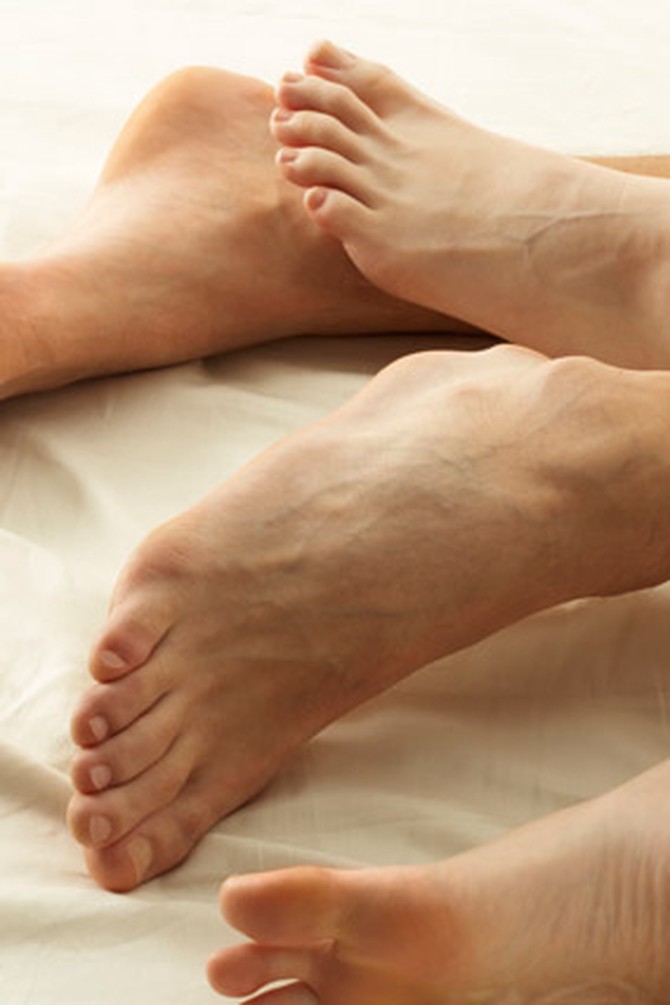5 Things We Didn't Know About Weight Loss
You're aware that you should eat more fiber and less saturated fat, and that soda is like liquid candy. But did you know about the 134-calorie mistake you're making at lunch?
By Corrie Pikul

Photo: Thinkstock
This writing exercise could be as slimming as the kind you do with hand weights.
Women who were asked to make a list of values (like relationships, politics and religion), and then write about the one that that was most important to them lost more weight, had lower BMIs and smaller waistlines than those who didn't write about their values, found researchers from Stanford University and the University of Waterloo in Canada. In the journal of Psychological Science, the study's authors speculated that when we focus on what's important to us, we feel better about ourselves and more in control of our habits, making us less likely to turn to food in times of stress or emotional need.

Photo: Thinstock
Cutting your restaurant budget can also help you cut calories.
Your weight loss goals are in direct opposition to the restaurant's profit goals, so even if you send back the bread basket and order everything grilled, steamed or dry, you'll still probably consume more than you realize. Eating just one meal a week away from home can translate into two extra pounds a year for the average person, the U.S. Department of Agriculture recently calculated. The average adult eats out nearly five times a week, and often consumes around 134 additional calories per meal.

Photo: HealthyVending.com
Sex doesn't burn as much energy as you think.
Getting busy can get our hearts racing and make us feel short of breath, so it makes sense that we'd assume the act burns a fair amount of calories (most people think that number is between 100 and 300 per romp). But when obesity researchers set out to dispel some unfounded myths about weight loss, they determined that most of us burn only around 21 calories during sex—about 14 more than if you and your partner spent the same amount of time vegging out on the couch. There are plenty of reasons sex is good for your health, but getting a cardio workout isn't one of them.

Photo: Thinkstock
Exercising more won't necessarily help you lose more.
Everything in moderation—including exercise, it turns out. Sedentary men who worked out daily for 30 minutes lost more weight over 13 weeks than those who worked out at the same intensity for an hour, found Danish researchers last year (an average of 7 pounds vs. 5 pounds). The study authors believe that the shorter exercise sessions inspired the men to get up and get moving, while also allowing them "to burn calories without wanting to replace them so much," they told the New York Times. The longer exercise sessions seemed to be more tiring and left the men without enough surplus energy to, say, take the stairs, and their food diaries also showed that they were eating more than usual. (That said, both groups of exercisers lost more weight than members in the control group, who engaged in no extra activity at all.)

Photo: Thinkstock
Exerting self-control can be a surprising path to joy.
Researchers from the University of Chicago found that people who showed the greatest self-control also reported more good moods and fewer bad ones. In a study recently published in the Journal of Personality, researchers revealed that study participants didn't possess superhuman willpower that allowed them to reject frosting-covered vices; rather, they were exceptionally proactive about avoiding tempting situations in the first place. "One interpretation of this finding is that people use self-control to set up their lives so as to avoid problems", the authors explained to Time magazine. And that makes them feel good about themselves—and about life in general. For sweets lovers, this could simply mean that the shortest distance between here and happiness is the route that doesn't pass by the bakery.
Next: 9 habits of people who love the weight they're at
Next: 9 habits of people who love the weight they're at
Published 07/31/2013
As a reminder, always consult your doctor for medical advice and treatment before starting any program.

